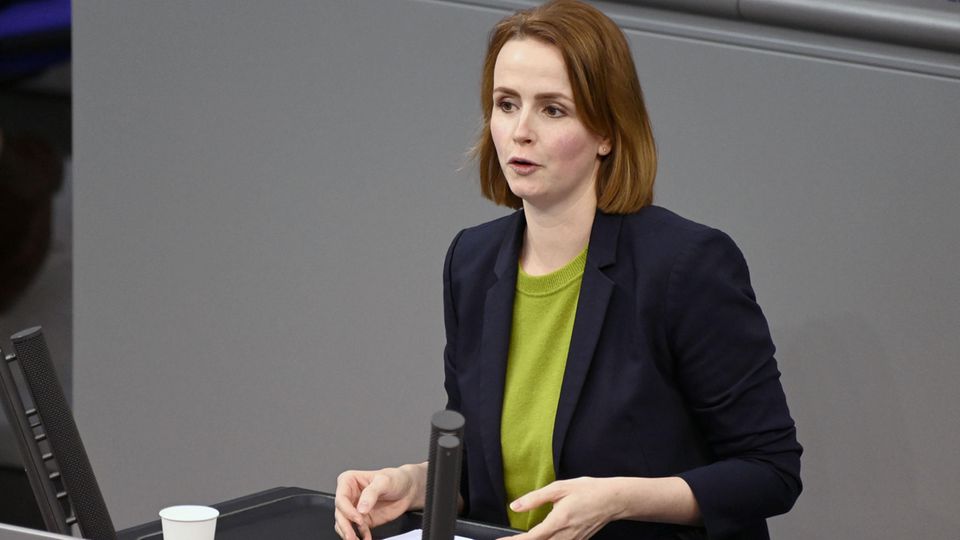Corporate tax
But still be friends? What the appearances by Lindner and Habeck mean
Finance Minister Lindner and Economics Minister Habeck
© dts news agency / Imago Images
Both Finance Minister Christian Lindner and Economics Minister Robert Habeck want to reduce taxes for companies. But that doesn’t mean that it will happen that way. Because there is a problem.
You may rub your eyes in amazement: Is it really true? Of all people, Finance Minister Christian Lindner from the FDP and Economics Minister Robert Habeck from the Greens should agree: “I’m with Christian Lindner,” Habeck told “Welt am Sonntag”.
What happened? “Lindner and Habeck want to relieve the burden on companies,” was one of the headlines. The two ministers, who often have such opposing views, see it this way: Companies in Germany are taxed too heavily, especially in international comparison. You have to get there. If you do nothing, Germany will become poorer because there will be no growth.
So is a major corporate tax reform coming now? Not so quickly: In this traffic light coalition, just because two people share the diagnosis of a problem does not mean that a solution will be found quickly. When it comes to the question of how exactly tax relief for companies could be financed, the agreement between Habeck and Lindner quickly disappears.
Special assets: Habeck and a no-go proposal
One only needs to look at how the current debate came about – and in what style it is being carried out.
Appearance 1: It started last Thursday. The budget of the Ministry of Economic Affairs was discussed in the Bundestag. Habeck ended his speech like this: “What if we introduced a special fund to solve the structural problems?” This should be used to create tax breaks and tax depreciation options for companies. An astonishing move that Habeck had apparently not previously discussed with his coalition partners: for the Liberals, such a special fund is an absolute no-go.
Appearance 2: Finance Minister Lindner promptly rejected the proposal. Habeck’s idea was “surprising in every respect,” he told “Welt am Sonntag.” “The economics minister is saying that he is dissatisfied with the federal government’s existing economic policy and that he believes something completely different is necessary.” Lindner is not convinced by Habeck’s proposal to pay for subsidies with debt. “In this way we would deform the social market economy.” However, Lindner also took a step towards Habeck: he also believes an “economic turnaround” is necessary. Lindner proposed a “dynamization package” that encompasses the areas of the labor market, climate protection, energy prices, bureaucracy and taxes. So he signaled to Habeck: Yes, talks, but not about new debts.
Appearance 3: In the same newspaper, Habeck was more conciliatory: “I agree with Christian Lindner: We have to do more for growth and economic dynamism.” He therefore wants to work with Lindner on a dynamization package. What exactly is that supposed to look like? Open.
Appearance 4: On Sunday evening, the finance minister was a guest in the “Report from Berlin” on ARD. Lindner took a dig at Habeck: “Because of me, there shouldn’t have been this speech in the Bundestag. We could have discussed it differently.” Now that the debate is there, we should do something constructive with it. He spoke again about his dynamization package – and took advantage of the opportunity to introduce an old liberal demand: the final abolition of the solidarity surcharge. This is the “quickest and easiest way”. “However, we would have to talk about counter-financing.”
Appearance 5: Just a few hours later, Habeck can be seen on Caren Miosga’s ARD talk show on Sunday. And is asked about the Lindner initiative there. The economics minister, however, was skeptical. Abolishing the solidarity would “initially make the problem bigger,” said Habeck. According to the Federal Constitutional Court’s ruling in November, there is already a billion-dollar funding gap in the federal budget for 2025. According to a spokeswoman, the Ministry of Finance is currently assuming a “need for action in the lower double-digit billion range”. If the additional income from the solidarity surcharge were to be lost, this would make the situation even worse.
Union blocks growth opportunities law
What does it all mean? Above all, one thing: Habeck and Lindner both see the problem of corporate competitiveness, but there seems to be little room for a possible solution. Financing the tax relief for companies through debt outside the actual budget – as Habeck suggests with the special fund – is not only out of the question for the FDP. The Union, on which the traffic light would be dependent, is also unlikely to agree.
However, the Finance Minister’s proposal to abolish the solidarity surcharge for companies does not seem realistic either. The traffic light would not have to rely on the Union for this. This is currently blocking the Growth Opportunities Act in the Federal Council, with which the government actually wants to increase Germany’s competitiveness. But the crux of the matter lies in the counter-financing: Lindner probably wants to finance the abolition of the solidarity surcharge through even more extensive savings in the budget. This is unlikely to be possible with the Greens and the SPD.
Habeck: “I don’t know if anything will come of it”
So it’s a tricky situation. In which – once again – the basic conflict between the Greens and the Liberals becomes apparent. Ultimately, this is also about fundamentals. The Green Habeck believes in a strong, controlling state. He repeatedly refers to the USA, where President Joe Biden wants to transform the industry with the “Inflation Reduction Act” worth hundreds of billions of dollars.
As a liberal, Christian Lindner naturally sees things differently: Companies would need more freedom and fewer requirements from the state – then they would position themselves for the future. “We want companies to finance the state, and not the state finance the companies.”
Habeck now wants his initiative to be seen primarily as an opportunity for discussion. “I don’t know if anything will come of it,” he said in the “Miosga” panel. That would probably be the worst result of this Lindner-Habeck show: If in the end, after a lot of talking, there is no result. But that is not unlikely.




